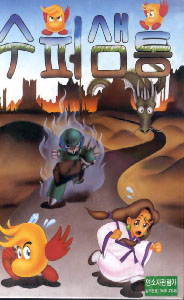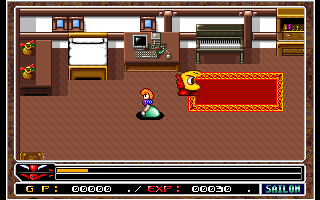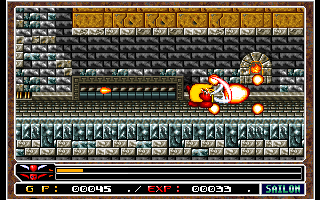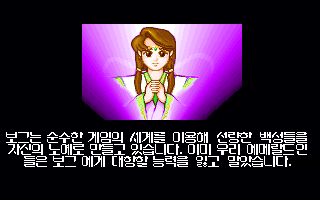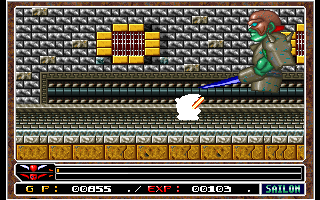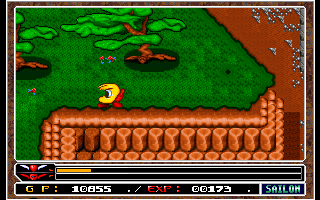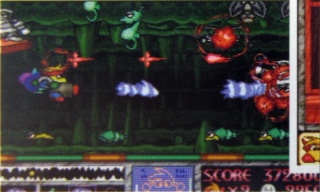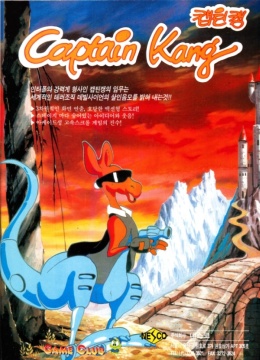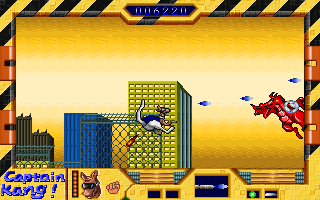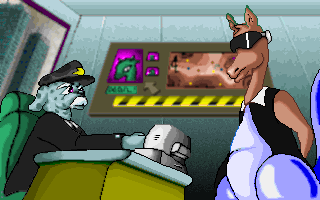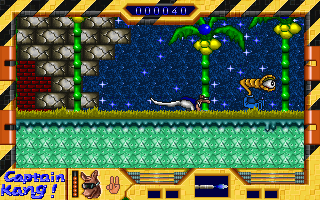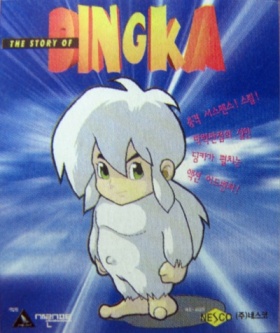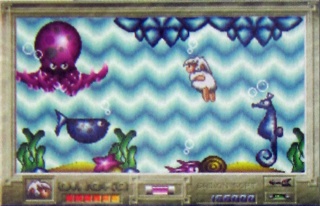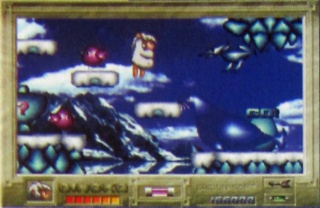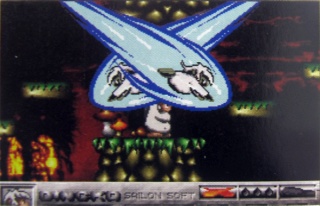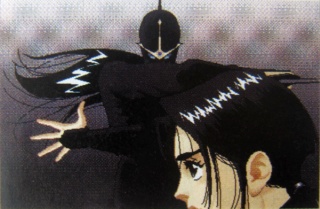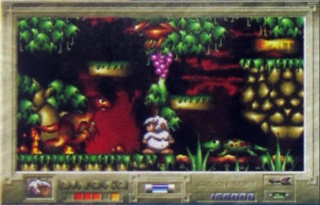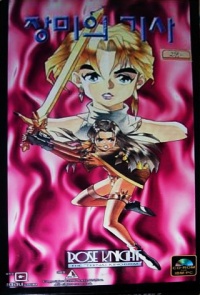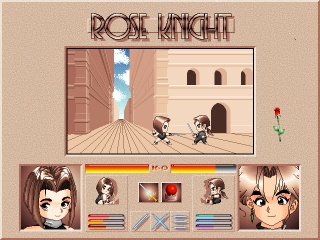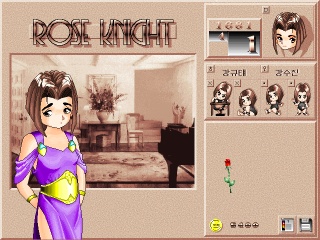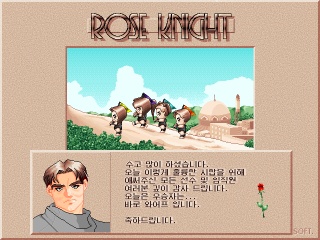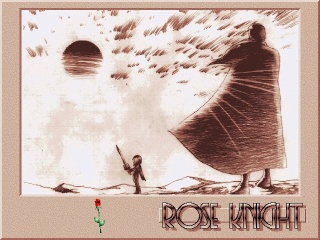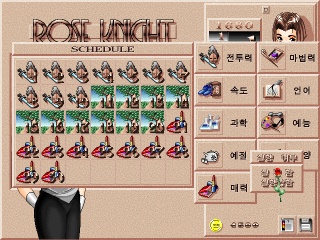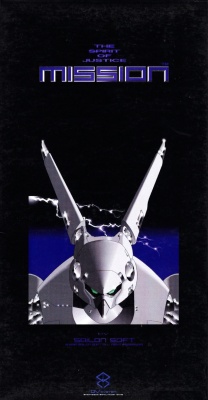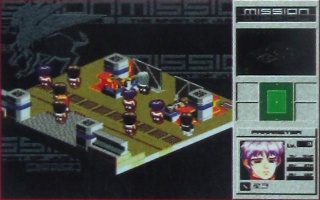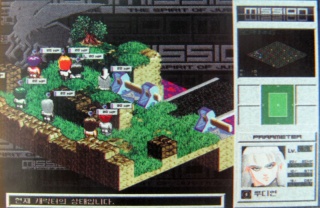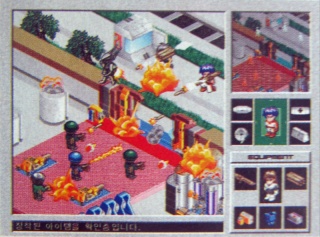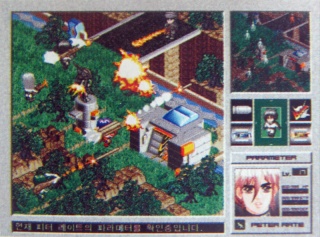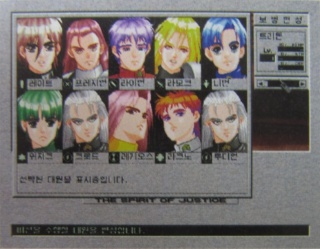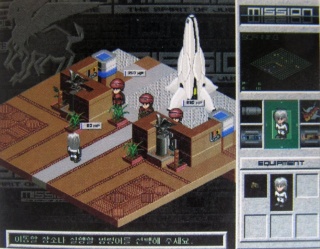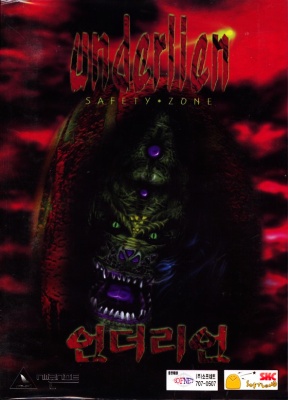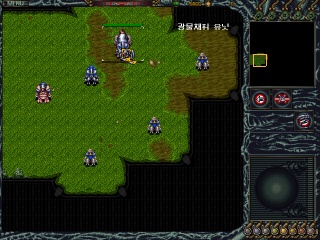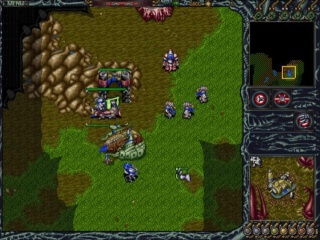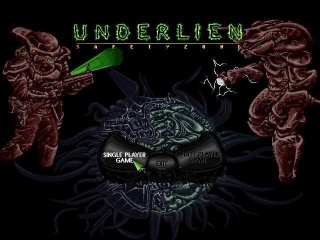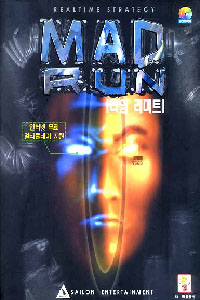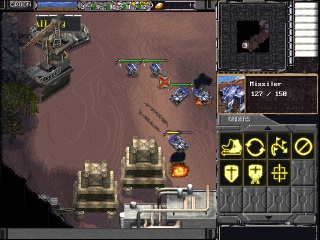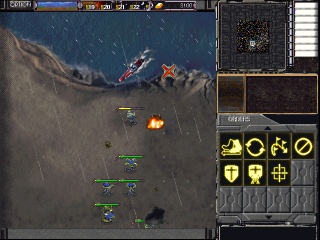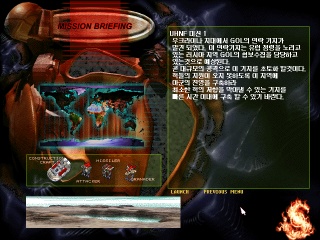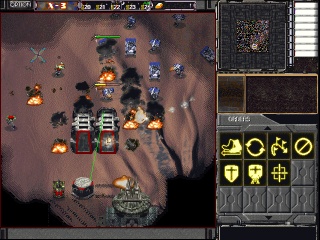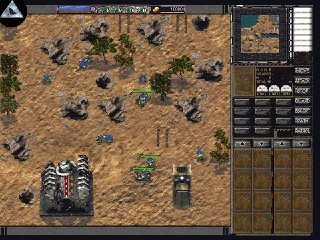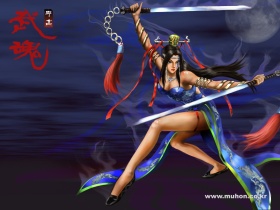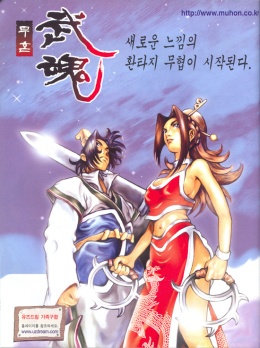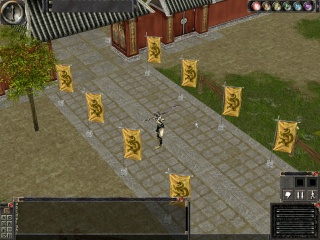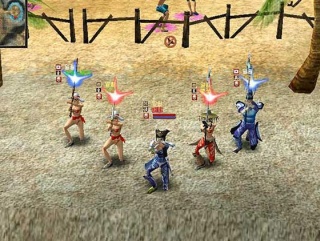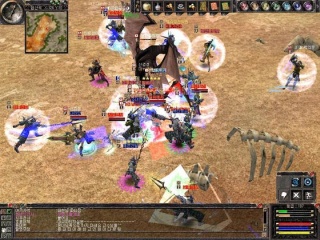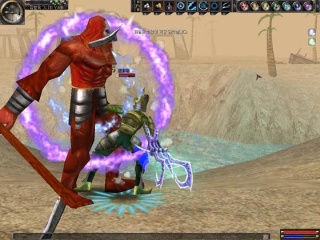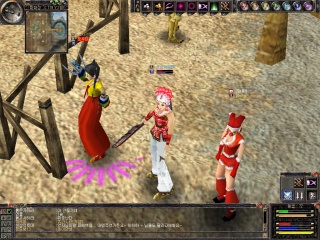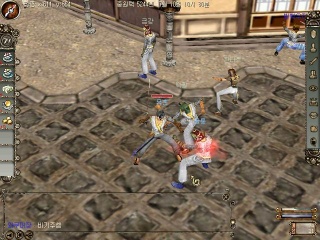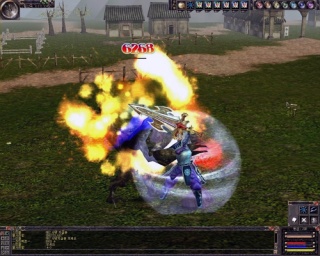A History of Korean Gaming
새론 소프트 Sailon Soft / 유즈드림 Uzdream
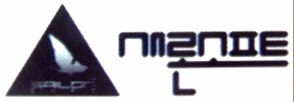

|
Founded: |
January 1994 |
|
Status: |
defunct (ca. 2008) |
|
Key People: |
양재영 Yang Jaeyeong: |
|
Website: |
www.uzdream.com (offline) |
Sailon came into being in 1994, when the staff at Mirinae Software split into two teams, basically to allow both founding members Jeong Jaesung and Yang Jaeyeong to each lead their own development team. It was a friendly division, though, and both companies continued to cooperate for years to come1. Sailon apparently did a better job at following industry trends than her sister company, surviving Mirinae Software by several years.
Sailon changed their company name two times, first from Sailon Soft to Sailon Entertainment in December 1997, later more significantly to Uzdream in March 20002. After their only released MMO was shut down in 2008, nothing has been heard of Uzdream, making it likely that the company doesn't exist, anymore.
Games
수퍼 샘통 (Super Samtong) - IBM PC (March 1994)
Cover Art
In 1994, Mirinae's mascot finally got his own game — only not with Mirinae, anymore. Most of Super Samtong was developed before the companies went seperate ways by members of both teams, but the character went with Yang Jaeyeong.
Unexpectedly, Samtong finds himself in a (somewhat) medieval action RPG. The story is as stereotypical as it gets. The fantasy kingdom has been enslaved by the evil overlord bog. Before the princess gets kidnapped, she sends a distress call to the "real" world. Samtong hears the call and embarks on the interdimensional adventure to save queen and country.
The game itself progresses in an equally unexiting manner. Somewhere between Zelda and Ys, Samtong's more immediate tasks almost always is to find key items to access the next area, acquire better equipment to stand a chance against stronger enemies, and finally smoke out an enemy infested dungeon in Zelda II / Ys 3-type side view, before the procedure repeats. As done-before as the formula may seem, there's nothing wrong with it, and it makes sense for that type of game. More problematic are the inonvenient controls — Samtong starts to dash automatically after walking a few steps, but falls back to walking speed after stopping even for a split second, which makes the movement lack fluidity. The game isn't programmed very carefully, resulting in many bugs and crashes.
Super Samtong looks amateurish at times, not because an overall low quality, but rather because some graphics are inconsistent in style. Samtong himself feels a bit miscasted as the hero because he's really just a mascot character with no depth whatsoever. Misplaced feels also some of the music. Done by Mirinae's Choi Jongyeop, it would have been more at home in the next Geu Nal-i Omyeon or some other shooter.
수퍼샘통SF외전PART1 (Super Samtong SF Oejeon Part 1) - IBM PC (March 1995)
For their second game, both Sailon and Samtong went back to their roots, namely to traditional horizontal scrolling shooting. Korean companies probably should have been more carefull dubbing their games "Part 1", as they were not always successful in actually following up to the promise implied in such a moniker (also see Harp). Super Samtong SF Oejeon Part 1 is no exception.
Quick Info:
|
Developer: |
Sailon Soft |
|
Publisher: |
Nesco |
|
Genre: |
Shoot-'em-Up: Horizontal |
캡틴 캥 (Captain Kang) - IBM PC (July 1995)
Advertisement
Sailon certainly deserves credit for being crazy enough to make a Kangaroo with bionic legs a video game hero, but that's about the only merit of Captain Kang. It may be related to Apogee's dominance on the PC for platforming games in the West, but many Korean games in the genre remind of the American shareware pioneer's products.
Captain Kang also feels very much like an Apogee game, but not a very good one. The game is much too hectic and once again shoddily programmed. Stages are as expansive as in the Apogee games, but there's no enforcement / incentive to explore them at all.
장미의 기사 (Jangmi-ui Gisa) / 로즈나이트 (Rose Knight) - IBM PC (March 1996)
Cover
Ever since Mantra had first translated Princess Maker into Korean, that kind of "education simulation" became very popular there. Of the many similar games that spawned in Korea during the next few years, Rose Knight has the strongest Princess Maker influence. It's almost the same game, only with a slightly different scenario, different tasks and of course all new graphics and music.
In this game the player assumes the role of an elderly knight, who of course has to schedule his daughters education, jobs and free time, in order to optimize all her stats. She can also go out into town to buy weapons, armor and accessories. Commending, encouraging and reprimanding her at the appropriate times is important as well. At the end of every month lies a random event, mostly contests or battles, but there are also several encounters that serve as flavor text only.
The stat economy in Rose Knight is rather unforgiving. It is neccesary to keep all the girl's attributes at a steady growth to stand a chance in any of the competitions, as the difficulty scales with the player's progress. The only sure way is to upgrade a stat immediately before it is used, but there's no way of knowing which event will come next.
As the girl grows in age, she gets access to more jobs, some of her main graphics change and she can buy more clothes. Still, like it is often the case with this kind of game, every action has to be repeated at least a hundred times, and the animations and standard dialogues become repetitive very soon. There's also little reward other than watching status bars grow and shrink, besides the eventual graduation at the end of the girl's educational career after hours of clicking through the same menus again and again.
Mission: The Spirit of Justice (미션) - IBM PC (October 1996)
Cover
It isn't quite what one would come to expect after first seeing the game's cute super deformed anime sprites, but Mission: The Spirit of Justice is a tactical ops simulation, depicting the war on terror in a not so distant future.
Sailon certainly took a bit of inspiration from the likes of Sabre Team and Jagged Alliance, thus turn-based tactical phases in quarter view follow on menu-based preparation. Units are unique and come in different classes like footmen, gunners, engineers or medics. They do gather experience and level up in familiar SRPG manner. Their experience levels, however, are supposed to be of secondary importance, laying most weight on the management of equipment and soldiers.
The game has nonetheless been criticised for a severe lack of tactical finesse. With few exceptions, soldier classes play out very similar. With the weapons, its mostly just the question of which one does more damage, disregarding any other possible particularities, like firing range, precision, etc.3
무혼 (Muhon) - Windows (November 2002)
Like all of Korea's old game developers with the will to survive, Sailon, now known as Uzdream, also needed to have their own MMORPG. Muhon countered the wave of generic fantasy RPGs with a distinctly Asian martial arts setting, and stayed reasonably popular for a long time, but maybe Uzdream relied for too long on this only pillar. Anyway, the game was shut down on May 1, 2008, the company disappearing with it.
Unreleased Titles:
광안리 액션 (Gwangalli Action) (1994)
지혜의 책 (The Book of Wisdom): Dragon's Scale (1995-1996)
비밀의 하늘 (Bimil-ui Haneul) (1998)
추더리퍼 (Tzu the Reaper) (2000)
References
1. Game Champ 4/1994, page 51
2. Uzdream company history archived February 1st, 2001
3. GameCom in MyCom 7/1996, page 70-71
